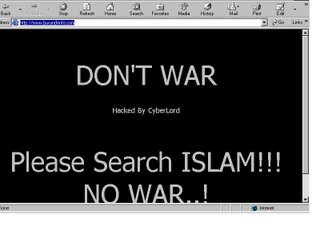"Burundi President tells a strange story"
Chege Mbitiru
Nairobi
Burundi has been in the news lately. Unfortunately the reasons aren't good. Some are bizarre. Hopefully, these aren't signs of another round of blood-letting.
President Pierre Nkurunziza told a strange tale on July 3.
The state radio reported him accusing unnamed politicians of plotting his overthrow. He said the plotters were known to police and military. The president effused magnanimity. He said he was trying to talk them out of bad ways. Apparently the sweet talk didn't work. Nearly a month later, police made arrests, including an ex-vice president. A week today, quite a wait, police got their big catch: former President Domitien Ndayizeye.
Media reports indicate Mr Nkurunziza and his security chief are pleased with the crackdown. The government is safe.
But, presidents don't go on radio and tell coup plotters "I know you" and then sweet talk them into reforming. Nor do intelligence chiefs give coup plotters time to refine plots. Moreover, coup plotters aren't so dumb as to sit around and wait to be rounded up, not even in Burundi.
On Thursday, the suspects, including Mr Ndayizeye, appeared in court. Journalists were locked out. Three radio stations got a scoop. The key witness in the alleged plot, Mr Alain Mugabarabona, gave a jailhouse interview. He was tortured to tell lies, he said.
Things weren't adding up for the government. Fairness though awards it the benefit of doubt. Mr Nkurunziza looked at his options and decided to sweet talk alleged plotters first. The alleged plotters were over confident. Any of these scenarios are implausible. Something is afoot.
Political indicators were that Burundi was headed to normalcy following the October 2001 formation of a transitional government. Tanzania's late President Julius Nyerere and former South Africa President Nelson Mandela deserve credit.
The two leaders painstakingly - Mr Mandela reportedly overbearing sometime - got Tutsi hardliners to acknowledge periodic butchery of majority Hutus wasn't a viable form of governance and Hutus to see vengeance was counterproductive.
The result was a complicated government structure to ensure power-sharing between the minority Tutsis - who have always dominated all aspects of Burundi's life since independence, in 1962, from Belgium - and majority Hutus.
The balance of power is such that the commander of the 5,600-strong UN peace force, Major General Derrick Ngwebi, last week didn't think a coup was sustainable.
As leader of the largest armed Hutu rebel group, the Forces for Defence of Democracy, the FDD, President Nkurunziza initially held out together with Mr Agathon Rwasa's Forces for National Liberation, the FNL. In 2003, Mr Ndayizeye and Mr Nkurunziza, both Hutus, patched up things. An end to the latest round of bloodletting that began in 1993 and has claimed some 300,000 lives appeared around the corner.
After all, the latest Tutsi military coup-maker, President Pierre Buyoya, had stepped down on schedule. Mr Ndayizeye took over as planned. A year ago, Mr Nkurunziza became president after FDD's electoral victory. The United Nations talked of reducing its force.
However, the FNL continued fighting, despite Mr Nkurunziza's overtures. The president's response was a military offensive. His explanation in December was "the FNL no longer has a reason to fight."
Certainly! Other than Mr Rwasa's ego, there's precious little for FNL to fight for. Some of its demands, like the disbanding of the army, are outright silly and indicative of its leaders' political immaturity. Unfortunately, the offensive against the FNL brought back the old nasty habits in security forces. Last November the New York-based Human Rights Watch accused the forces of summary executions and torture of civilians suspected of being FNL collaborators.
At the same time, Mr Ndayizeye's party, Frodebu, expressed similar views. Mr Ismail Diallo, a UN human rights official in Burundi, was blunt. The human rights situation in Burundi was "catastrophic", he said.
Things seem to have only got worse. Early this month, 10 human rights organisations in Burundi demanded the government halts inhumane and degrading treatment of individuals suspected of the alleged coup plot. Last Wednesday, it emerged seven people were last month taken from police custody to a military camp and later found dead and thrown into a river.
On the same day, Ms Francoise Ngendahayo, human rights minister, said she had seen aftermaths of beatings of detainees in prison. Government spokesperson, Mr Ramadhan Karenga, issues denials. Too many people and organizations can't tell lies all the time.
Complexities in Burundi's politics are out of proportion, considering the country's size and population. Undoubtedly, Mr Nkurunziza has enemies galore and need to fight for political survival. It would be na?ve also to assume diehard Tutsis aren't plotting the fall of a Hutu-led government.
On the other hand, for Mr Nkurunziza adopts nasty tactics, which most Burundians and people in the region are fed up with and will only discredit him and take the country back to the dark days. That's the message regional leaders should deliver to Mr Nkurunziza.
Mr Mbitiru is a freelance journalist.
Take action - Fax your MP!
Take action - sign the Gatumba petition
Burundi, human rights, Current Affairs, Politics, Africa


